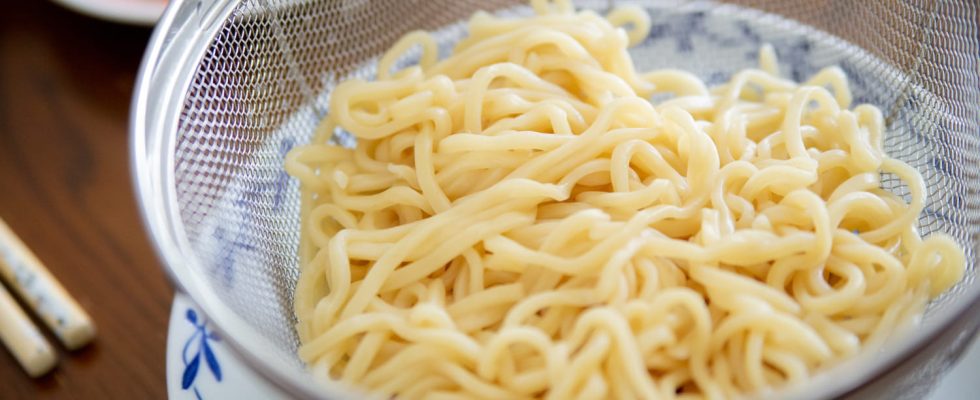Pasta keeps for a long time… But not forever. There are certain signs to watch out for.
If there’s one dish that everyone agrees on, it’s pasta. They are quick and easy to prepare, nutritious, good for your health, and there are a multitude of ways to cook them. Carbonara tagliatelle, spaghetti Bolognese, spinach lasagna, pesto fusilli, or simply noodles with a little butter. They always meet with incredible success. It’s not for nothing that we all always have one or more packets of pasta in our kitchen cupboards. Although they are practical because they do not really expire, you still need to pay attention to certain signs which show that they are no longer good.
As with most foods, pasta has a use-by date on its package. But they are one of the foods that can be eaten well afterwards. For example, if you have an unopened package of dried pasta in your cupboard, you can still eat it up to 5 years after the expiration date. If you buy the pasta in bulk, this date is reduced to 6 months from the date. Finally, for fresh pasta, it contains eggs. It is best to respect the expiration date, or not to exceed the date by two days. In all cases, we advise you to check the appearance of your pasta before consuming it, whether it is expired or not.
Certain signs are unmistakable and indicate that you should definitely not eat your pasta. For fresh pasta, pay attention to the following points:
- A swollen package;
- A bad smell ;
- Viscous or gooey pastes.
For dry pasta, check:
- Texture: if they are harder or more brittle than usual;
- Presence of mold or dust such as sawdust;
- A bad smell.
This reveals that your pasta is in poor condition and is no longer suitable for consumption. When in doubt, it’s always best to throw the pasta away.
It is also important to remember that you must be particularly careful with pasta that has already been cooked for several days and remained at room temperature. The Bacillus Cereus bacteria can proliferate. This bacteria is naturally present in rice and pasta. It is not inherently dangerous, but it can become dangerous if your pasta was cooked more than two days ago. It can cause food poisoning which can be serious, in the most extreme cases, death.
To avoid taking any risks, here are the instructions to follow: keep the pasta in the fridge for a maximum of two hours after cooking (ideally refrigerate it within 30 minutes). Then, take them out of the fridge and reheat them once you want to eat them.
